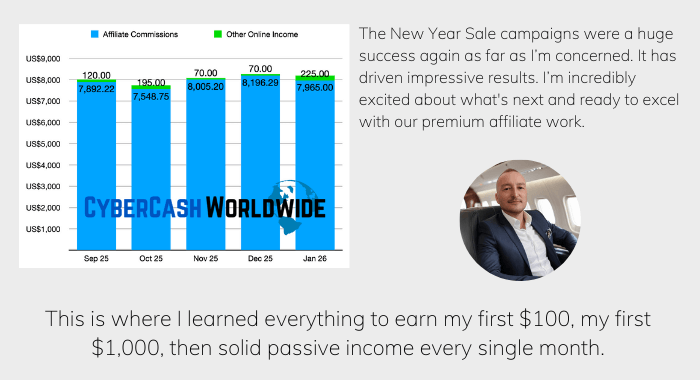Focus acts like a psychological magnet, drawing opportunities, resources, and outcomes directly toward what occupies your mental space. Your brain operates as a sophisticated filtering system, highlighting information that aligns with your dominant thoughts while dismissing everything else as background noise. This phenomenon explains why couples trying to conceive suddenly notice pregnant women everywhere, or why someone shopping for a red car starts seeing red vehicles on every street corner. The world hasn't changed - your focus has shifted, and reality follows suit.
Most people scatter their attention like seeds in the wind, wondering why nothing substantial grows from their efforts. They chase multiple directions simultaneously, diluting their energy and wondering why progress feels sluggish. Your brain wasn't designed to excel at everything simultaneously - it thrives when given clear, consistent direction about what matters most.

The Neuroscience Behind Selective Attention
Your reticular activating system functions as a mental gatekeeper, deciding which of the millions of sensory inputs deserve your conscious attention. This neurological filter works tirelessly in the background, scanning for patterns that match your current priorities and interests.
Scientists estimate that your brain processes roughly 11 million bits of information per second, yet only about 40 bits reach your conscious awareness. The difference between success and mediocrity often lies in training this system to highlight opportunities rather than obstacles.
When you consistently focus on specific outcomes, your brain begins rewiring itself to notice relevant pathways and possibilities. Neural pathways strengthen through repetition, making focused thoughts increasingly automatic and natural. This biological process explains why elite athletes visualize successful performances - they're literally programming their brains to recognize and execute winning patterns. Your thoughts become the blueprint for your brain's construction project.
Programming Your Mental Radar
Deciding to start a freelance graphic design business while working your corporate job transforms how you perceive the world around you. Dedicating lunch breaks to researching successful designers and studying their portfolios online shifts your mental filters. Within three weeks, design flaws in restaurant menus, business cards, and advertisements everywhere become glaringly obvious. Heightened awareness leads to your first client - a coffee shop owner whose outdated signage you diplomatically mention during a casual conversation.
The same principle applies to any area of life where you want to see improvement. Athletes who focus on specific techniques start noticing subtle body mechanics in other players that previously escaped their attention. Entrepreneurs focused on solving particular problems begin recognizing market gaps in everyday conversations. Your brain becomes a heat-seeking missile for whatever you program it to find.
Turning Problems Into Opportunities
Struggling with chronic back pain from your desk job becomes the catalyst for transformation when you decide to focus on solutions rather than symptoms. Researching ergonomics, posture correction, and workplace wellness during your commute instead of scrolling social media changes everything.
Within a month, you discover a simple standing desk converter that transforms your work experience. Colleagues notice your improved energy levels and begin asking for advice, eventually leading you to launch a workplace wellness consulting side business.
Notice how shifting focus from the problem itself to potential solutions completely changed the trajectory of your experience. Your brain stopped filtering for pain-related information and started highlighting healing possibilities. The opportunities were always present in your environment - your focused attention simply made them visible. This mental shift from victim to problem-solver opens doors that remain invisible to those stuck in complaint mode.
The Compound Effect of Daily Direction

Small, consistent actions in a focused direction create exponential results over time, much like interest compounds in financial investments. Most people underestimate the cumulative effect of daily habits because the individual actions seem insignificant in isolation.
Reading 20 pages of industry-related material daily will consume roughly 30 books per year - enough specialized knowledge to become an expert in most fields. The magic lies not in any single reading session but in the relentless consistency of direction.
Daily choices either move you closer to your desired outcomes or further away - neutral ground rarely exists in personal development. Each decision serves as a vote for the type of person you're becoming and the life you're creating. This voting system operates continuously, tallying results through accumulated actions rather than dramatic single events. The compound effect rewards those who maintain focus long enough to see small efforts multiply into significant achievements.
Building Momentum Through Micro-Commitments
Wanting to become a published author but feeling overwhelmed by the enormity of writing a complete book requires a different strategy. Committing to write just 200 words daily - roughly one paragraph - before checking your morning emails feels manageable and doesn't disrupt your existing schedule.
After six months, you accumulate over 36,000 words and discover a natural writing rhythm that makes larger daily word counts feel effortless. The manuscript that seemed impossible suddenly becomes inevitable.
The beauty of micro-commitments lies in their ability to bypass resistance while building genuine momentum. Your brain interprets small, consistent actions as evidence of your identity rather than temporary behavior. This psychological shift makes maintaining focus feel natural rather than forced. Your brain begins identifying you as "a writer who writes daily" rather than "someone who wants to write someday."
Stacking Success Habits
Deciding to transform your health by focusing on one small change per month rather than attempting a complete lifestyle overhaul proves more sustainable.
- January focuses solely on drinking water immediately upon waking.
- February adds a 10-minute morning walk.
- March incorporates five push-ups before your shower.
By December, your morning routine includes hydration, exercise, strength training, meditation, and healthy breakfast preparation - all happening automatically without willpower or decision fatigue.
This habit-stacking approach works because each new behavior attaches to an already established routine. Your brain loves predictable patterns and will naturally link new actions to existing triggers. Success comes from focusing on one change at a time until it becomes automatic before adding the next layer. Most people fail at transformation because they try to change everything simultaneously, overwhelming their brain's pattern-recognition systems.
Eliminating Decision Fatigue Through Clarity
Decision fatigue drains mental energy faster than physical exertion, leaving you vulnerable to poor choices later in the day. Studies show that judges make harsher sentences before lunch and more lenient ones after meals, demonstrating how mental depletion affects even trained professionals.
Your brain treats every decision - from what to wear to what to eat to how to spend your evening - as an energy expenditure. Successful people minimize trivial decisions to preserve mental resources for high-impact choices.
Clear priorities eliminate the need to constantly reevaluate options because the criteria for decision-making become predetermined. When you know your primary focus, saying no to distractions becomes automatic rather than agonizing. This clarity transforms decision-making from an energy drain into an energy saver. Your brain stops wrestling with competing options and starts executing predetermined strategies.

Streamlining Daily Choices
Steve Jobs famously wore identical outfits to eliminate clothing decisions and preserve mental energy for innovation. Mark Zuckerberg adopted similar habits, choosing the same gray t-shirt and jeans combination daily. Barack Obama limited his wardrobe to blue or gray suits during his presidency, stating that reducing trivial decisions helped him focus on more pressing matters. These leaders understood that mental energy is finite and should be allocated strategically rather than squandered on routine choices.
The principle extends beyond clothing into every area of daily life. Successful writers often write at the same time and place each day, eliminating the decision of when and where to work. Fitness enthusiasts lay out workout clothes the night before, removing morning barriers to exercise. These systems create what psychologists call "implementation intentions" - predetermined responses to predictable situations that bypass the need for willpower.
Creating Decision Trees
Building a simple decision tree for evaluating social invitations based on your priority of advancing your photography career eliminates mental wrestling. Invitations that include other photographers or potential clients receive automatic yes responses.
Events with no professional networking opportunity get declined unless they involve close family. Social gatherings that fall on your designated editing days require compelling reasons to accept. This framework eliminates the stress of constantly weighing options against competing priorities.
Decision trees work because they establish clear criteria before emotions and social pressure enter the equation. Your system prevents you from overcommitting to social obligations that don't align with your professional focus. The predetermined framework also helps you explain declining invitations without feeling guilty or making others feel rejected. Friends learn to respect your boundaries because they're consistent and clearly communicated.
The Magnetic Field of Consistent Action
Consistency creates a magnetic field around your efforts, attracting opportunities, resources, and people that align with your direction. This phenomenon occurs because others begin to associate you with your area of focus, making you their go-to person for related opportunities.
Your reputation becomes a magnet for exactly what you're working toward. People start thinking of you when relevant possibilities arise, creating a network effect that amplifies your focused efforts.
Regular action in your chosen direction signals commitment to both yourself and others, establishing credibility that opens doors. This credibility comes not from grand gestures but from sustained, visible effort over time. Your consistency becomes social proof of your dedication, making others more willing to invest in your success. The magnetic effect grows stronger as your track record of focused action extends longer.
Becoming the Go-To Person
Deciding to focus on learning everything about sustainable farming practices and sharing your discoveries through weekly blog posts and social media updates creates unexpected momentum.
Consistently posting content about soil health, crop rotation, and organic pest control methods draws attention from your local farming sector. Within eight months, local farmers begin reaching out for advice, and agricultural equipment companies start offering you product testing opportunities. Your focused expertise makes you the obvious choice when a sustainable farming nonprofit needs a consultant.
Your magnetic field grows stronger through consistent demonstration of knowledge and passion. Weekly posting schedules create anticipation among your growing audience, who begin sharing your content with others interested in sustainable agriculture.
The compounding effect of focused expertise makes opportunities seek you out rather than requiring you to chase them. Your reputation precedes you in conversations, creating instant credibility with new contacts.
Building Authority Through Repetition
Focusing exclusively on helping small business owners optimize their tax strategies while turning down general accounting work to specialize in this niche accelerates your professional growth. Publishing weekly tax tips, speaking at small business meetups, and creating free resources for entrepreneurs establishes your expertise.
Laser focus on this specific problem makes you the obvious expert when business owners need tax help. Word-of-mouth referrals multiply because clients understand exactly what you do and who you help.
Specialization creates memorable positioning that makes referrals effortless for your network. When you meet new people, they immediately understand your value proposition and remember you when tax season approaches. Your focused expertise becomes a conversation starter that naturally leads to business opportunities. The depth of knowledge you develop in your chosen niche makes you irreplaceable rather than interchangeable.
The Magnetic Pull of Single-Minded Focus
Focus transforms scattered potential into concentrated power, turning wishful thinking into magnetic reality. Your attention becomes the architect of your experience, designing a world that reflects your dominant thoughts and consistent actions.
The choice to focus isn't a one-time decision but a daily practice that compounds over time, creating momentum that eventually becomes unstoppable. When you direct your mental energy with laser precision, you don't just achieve your objectives - you become irresistibly attractive to everything that aligns with your vision.

